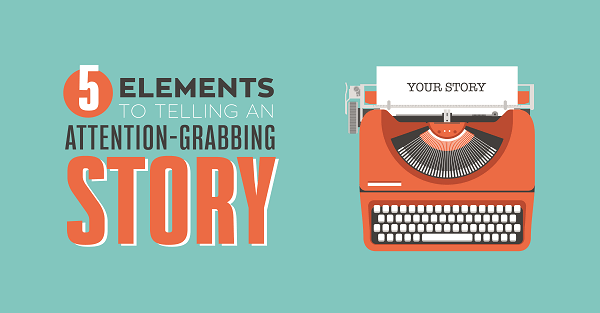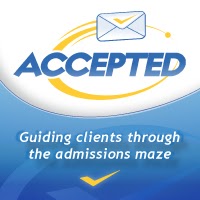This post originally appeared on the Accepted blog.
Ready to write your personal statement? Then it’s time to conjure your inner storyteller. The best way to distinguish yourself from other applicants is to tell the admissions board a good story, a tale of your greatest achievements, dreams, and challenges.

How do you tell a good story?
It’s not about lifting plots from Harry Potter or hoping you suddenly gain magic storytelling powers. It’s about tying together the following five key elements:
Storytelling element #1: Creating a killer opening
To get the admissions reader to keep reading – and even better, to keep reading enthusiastically – start with something attention-grabbing. Usually it’s something in the middle of the action. If you started an essay with One day I decided to watch TV, then your readers probably wouldn’t really care what happened next. It may be that you were watching TV when you found a worrisome lump, but your bored readers likely won’t get to that point because of the snooze-inducing opener. On the other hand, an opening like The moment I found the lump, I suspected my life was about to change – in a big way will do a much better job of drawing in your readers.
Storytelling element #2: Setting context
It was mid-May 2011. I was a busy consultant in McKinsey’s Chicago office, the proud father of a boy about to turn one, and a generally happy guy in his mid-20s.
This part immediately places the killer opening in context. Context (person, place, time) is important because readers want to understand the story’s circumstances; it helps them relate to the story, even if they’ve never been in that situation.
Storytelling element #3: Introducing the stakes
The above line also shows the reader what’s at stake. Stakes further help the reader relate to a story – if there’s little for the main character to lose, then the reader won’t care much about what happens next. Luke Skywalker had to destroy the Death Star to prevent Darth Vader from taking over the universe, which would have meant a lot of suffering for everyone. If Dorothy couldn’t navigate Oz’s Yellow Brick Road past the Wicked Witch, she never would have gotten back home to Kansas. If you had never figured out the source of the lump and treated it (if needed), then you wouldn’t have been able to continue your life as a busy consultant, proud father, and generally happy guy. You don’t need gargantuan stakes for people to relate to your story; but effective stakes are something most of us would fight for, like health, a job, our community’s welfare, and the like.
Storytelling element #4 & #5: Outlining the obstacles & Demonstrating strength of character
It was tempting to wish the lump would just go away, and for a few days that was my strategy. I didn’t even tell my wife. But soon I recognized that knowledge is power, and made an appointment with my doctor. Within a week I had a diagnosis: cancer.
This keeps the reader interested because it brings in two new elements: an obstacle (cancer) and character (your personality traits).
By this point in the story, your readers will know that you are the main character – you’re the consultant, father, etc. But the text above shows your reader what kind of character you are: one who is human (tempted to wish something bad away) but also one who takes action in adverse circumstances (going to the doctor).
Character isn’t only about positive traits though. Many essay questions ask you to discuss a time you failed or made a mistake. For those, you need to highlight negative traits upfront (e.g., Luke Skywalker’s lack of faith in himself and the Force), but in the context of how you gained insights and ultimately more positive attributes from dealing with their consequences.
Do you need help writing your attention-grabbing story? Check out our 1-on-1 services for more information on how we can help you use story elements to write effective essays.
About Linda Abraham:
 Accepted.com has guided thousands of applicants to acceptances at top universities since 1994 – they know what works and what doesn’t, so follow Linda Abraham on Google+ and contact Accepted to get started or visit Accepted.com for all your admissions consulting needs today!
Accepted.com has guided thousands of applicants to acceptances at top universities since 1994 – they know what works and what doesn’t, so follow Linda Abraham on Google+ and contact Accepted to get started or visit Accepted.com for all your admissions consulting needs today!

